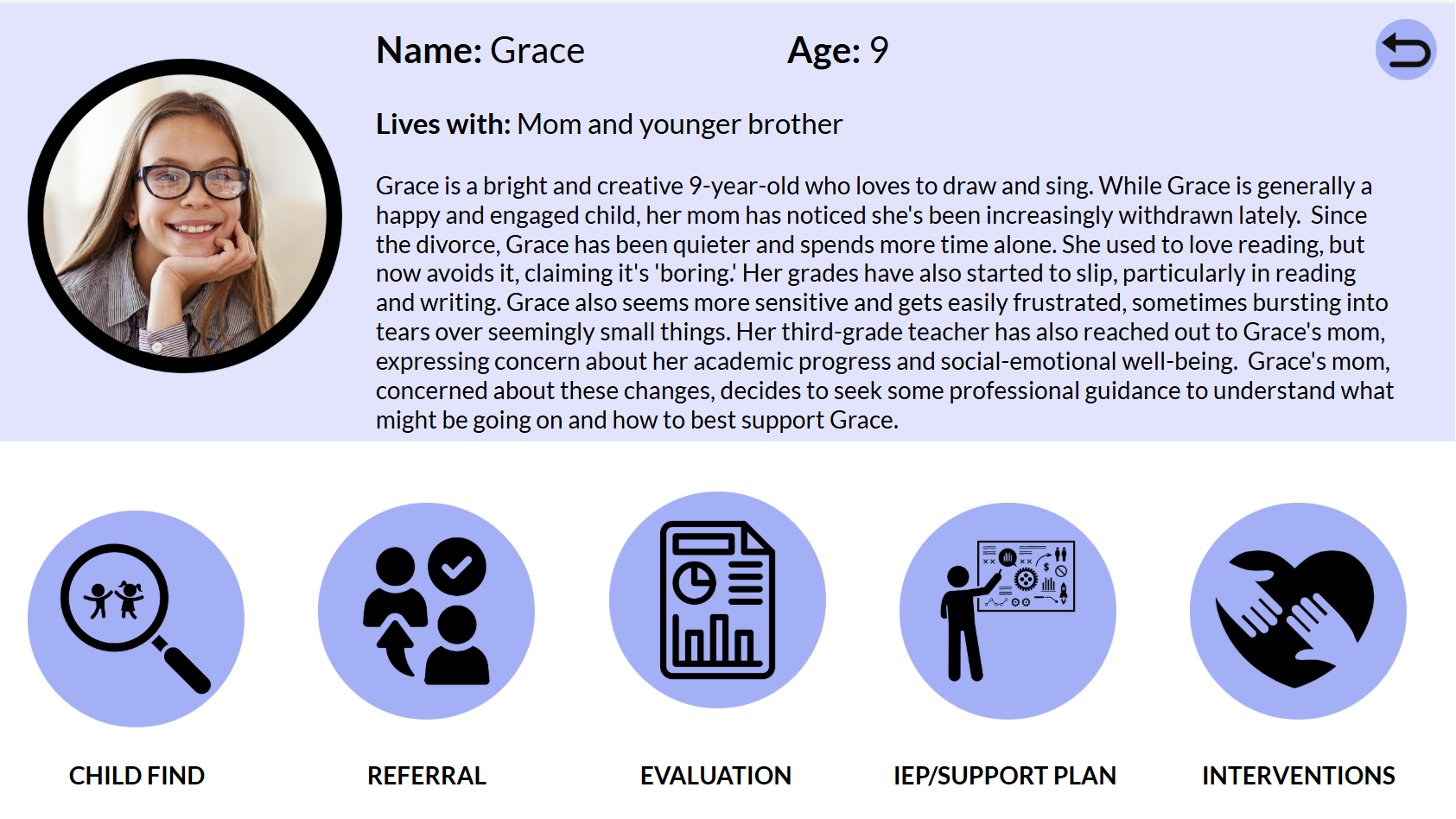
Project Title: Advocating for Your Child: A Guide for Special Education Parents
Overview: This course was created to support families who want to play an active role in their child’s education but often find themselves overwhelmed by the complexity of the special education system.
While school staff typically receive formal training in policies and procedures, parents are expected to learn those same systems on their own, often during stressful moments when quick decisions are being made. That disconnect can leave even the most engaged, resourceful parent feeling unsure of what to ask, what their rights are, or how to move forward.
Drawing from my experience as a teacher, parent, and advocate, I designed this course to close that gap. It’s clear, accessible, and focused on what families need to know in order to feel informed, prepared, and empowered.
The course can be used independently or shared through schools, nonprofits, and community-based organizations. It’s one small step toward making the system more understandable—and more equitable—for the people it’s meant to serve.
Solution
This course was designed to give families what they actually need: clarity, flexibility, and tools that make sense in real life—not more jargon or pressure.
It guides parents step-by-step through the special education process, from understanding their child’s legal rights to navigating evaluations, developing an IEP, and knowing what to do when things don’t go as expected.
Every family’s starting point is different. Some are just beginning to notice signs that their child may need additional support. Others are already deep into paperwork, meetings, or tough decisions. The course reflects that range. Each module offers straightforward explanations, relatable scenarios, interactive tools, and downloadable resources that families can revisit whenever they need them.
To keep the learning grounded, every section includes story-driven scenarios based on real-life experiences. These stories help bring the process to life—offering insight into how teachers, service providers, and administrators might think, while also validating what it’s like for parents on the other side of the table. One lesson even includes a simulated due process hearing to help reduce the fear and confusion that often surround formal disputes.
Although the course is designed for self-paced use, it can easily be shared by schools, healthcare providers, and community organizations. Whether recommended by a pediatrician, posted on a nonprofit website, or offered in a parent support group, it’s meant to be welcoming, useful, and easy to access.
Curious about the full experience? Click the button below to navigate the course as a learner.










